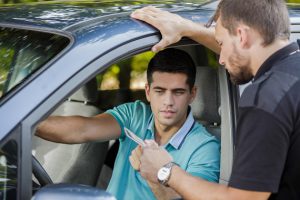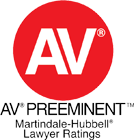 If you are in the Los Angeles, California area, you should be aware of the various ways that police are identifying intoxicated drivers across the state.
If you are in the Los Angeles, California area, you should be aware of the various ways that police are identifying intoxicated drivers across the state.
We have put together this simple guide for you to know what to expect, and what to do if you come across a DUI checkpoint. Contact Los Angeles DUI lawyer Jon Artz if you need legal representation.
How do police check for people driving under the influence?
At checkpoints, officers are able to observe a larger demographic of drivers who are statistically more likely to be driving under the influence. This includes:
- Drivers leaving a stadium after a late-night basketball or baseball game or concert.
- Drivers exiting the highway late at night
- Weekends when more drivers are likely to have consumed alcohol at dinner or events
- Holidays when drinking and driving rates increase
In order to check for people driving under the influence, police officers will look for a reason to stop the car, such as swerving or driving unusually slowly.
What do police look for before the pull someone over for suspected DUI?
When police pull someone over for a suspected DUI they have to do so because of a reasonable suspicion that the driver has committed a crime. The police need to have a reason (or probable cause to arrest) to believe you were under the influence otherwise the case can get thrown out of court. These suspicions are often the result of:
- Signs of impairment like swerving
- Traffic violation like a broken taillight
When pulled over for a routine traffic stop, officers will ask for license and registration during which time they will look for signs of impairment such as the smell of alcohol or fumbling with your documents. These observations will show up in any subsequent police report.
With a DUI stop, the officers will ask if the driver was drinking. ANY affirmative response is adequate for police to further investigate for DUI, even the commonly used “only one or two beers” statement.
If there is probable cause to arrest, police officers can then search your car. They will ask for consent typically and then search for incriminating evidence like drugs or alcohol in the car.
Pro Tip: If you are stopped and asked “how many drinks have you had today”, knowing how to answer can determine what happens to you next. Read this guide to find out how to answer this important DUI question.
DUI Checkpoints in California
At DUI checkpoints, Los Angeles police will employ the same tests as regular traffic stops if there is suspicion of driving under the influence.
Field Sobriety Tests Include:
- Horizontal gaze nystagmus
- Walk and turn tests
- One leg stands
- Romberg test (close eyes, tilt head back for 30 seconds)
These tests are used to develop probable cause for arrest. Poor performance can persuade a police officer to make the DUI arrest.
Pro Tip: You can avoid taking the breathalyzer test, but there are consequences. Knowing what to do in your situation can make a huge difference. Read this guide to learn more.
Chemical Tests Include:
- Pre-arrest breath test which drivers can refuse to take in California. This is a “preliminary alcohol screening” driver. These are not the most accurate and are used as a general tool to see if a driver is below or near the legal limits.
- Evidential breath tests are devices used by police after an arrest, once the driver is taken to the station.
Drivers who are suspected of being under the influence can decline the pre-arrest test and be taken to the station for a blood test and/or evidential breath tests.
What to Do If You Have Been Charged With DUI in the State of California
If you have been charged with a DUI in the State of California, let one of our top rated San Diego DUI defense attorneys guide you through the process.
Our attorneys have over 40 years of combined experience helping our clients through their DUI charges. We have seen it all and helped clients in all types of situations over these years.
For a free case evaluation, contact Jon Bryant Artz. Get the experienced defense you deserve, and get answers to all of your questions, entirely free. Call today and schedule your FREE case evaluation.


